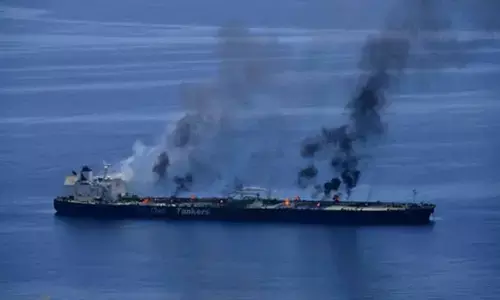Nirbhaya Verdict: A timeline of events that led to justice
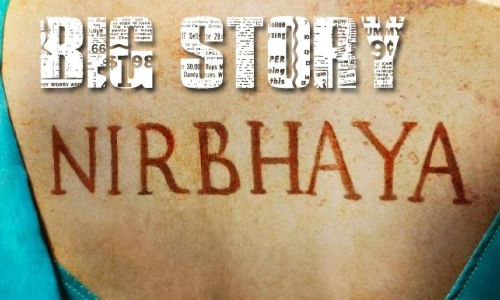
The entire nation shook when the news of the 2012 Delhi gang rape case surfaced questioning once again the safety of the women in the National Capital.
The entire nation shook when the news of the 2012 Delhi gang rape case surfaced questioning once again the safety of the women in the National Capital.
A 23-year-old medical student was gang-raped in a moving bus in a densely populated area of Munirka, a neighbourhood in South Delhi.
The incident happened when she and her 28-year-old male friend boarded a bus which had six others. All the six including the driver started sexually abusing the woman. When her male friend intervened, he was beaten up while the woman was gang-raped. She was brutalised with an iron rod and her internal organs were ripped out.
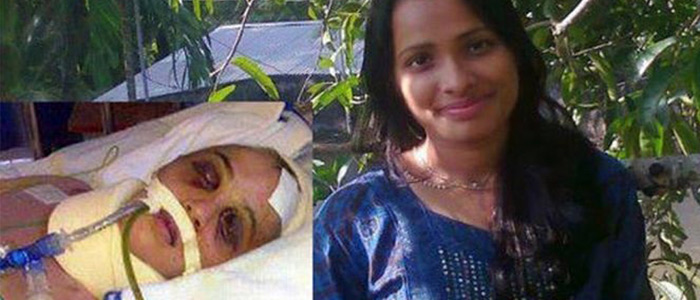
Following the incident, both of them were thrown off the vehicle. Police was alerted and they were rushed to the hospital. The statement of the victim was recorded at the Safdarjung Hospital with the doctors hailing her fearless and bold for putting up a fight despite her condition.

The incident caused uproar and generated protests against the government for failing to provide security for women in Delhi.
Public protests rocked the Capital at India Gate and Raisina Hill with thousands of demonstrators battled the police. Many were arrested after the Rapid Action Force units used water cannon and tear gas to disrupt the crowd.
Similar protests were held throughout the nation - Over 600 women held demonstrations in Bangalore, thousands participated in silent march in Kolkata while an online petition was also signed protesting the incident.
With the law in India refraining from publicizing a rape victim's name, the name Nirbhaya came into existence which meant fearless and it became a symbolism of women's struggle to end the rape culture in the country.
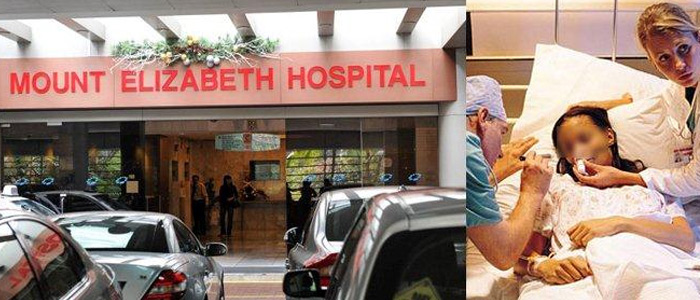
She was later shifted to Mount Elizabeth hospital in Singapore but after a long battle of 13 days, she succumbed to death.
All the accused in connection with the incident were arrested and charged with sexual assault and murder. Ram Singh, one of the accused, died on March 11, 2013 in police custody from possible suicide.
In the wake of protests held in Delhi, the Indian legislation passed the Criminal Law (Amendment) Act also known as Nirbhaya Act providing amendment of Indian Penal Code, Indian Evidence Act, and Code of Criminal Procedure on laws related to sexual offences.
President Pranab Mukherjee promulgated the ordinance and the Nirbhaya Act came into force.
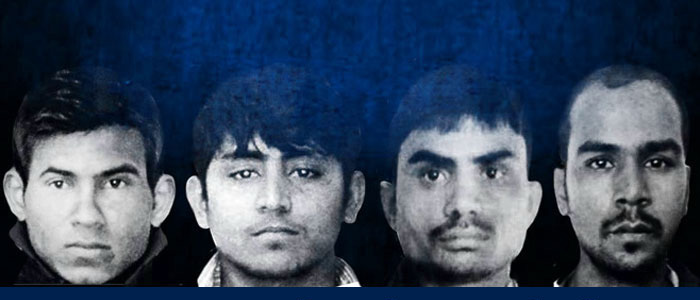
The rest of the accused went to trial and the prosecution presented its evidence.
The four adults involved in the case were found guilty of rape and murder on September 10, 2013 while the juvenile was given the maximum sentence of three years' imprisonment in a reform facility.
In a landmark judgment of awarding the all the four men death sentence came in after a special fast track court pronounced the verdict on the beastly and unparalleled behaviour of the incident.
The verdict statement announced by Additional Sessions Judge Yogesh Khanna said, "This ghastly act of the convicts definitely fits this case in the bracket of rarest of rare cases. I award the death sentence to each of the convicts — Akshay Thakur, Mukesh Singh, Vinay Sharma and Pawan Gupta under IPC 302."
He added, "The increasing trend of crimes against women can be ar- rested only when the society realises that there will be no tolerance for any form of de- viance against women and more so in extreme cases of brutality such as the present one and hence the criminal justice system must instil confidence in the minds of people, especially women. The crime of such nature against helpless women requires exemplary punishment."
Two of the convicts invoked Mahatma Gandhi to oppose death penalty telling the Delhi High Court that even the father of the nation stood against capital punishment. Advocate AP Singh who was fighting for the accused claimed that the duo don't deserve deterrent punishment in the case and that a death penalty won't stop crime in the society.
The death sentence awarded to the four convicts was upheld by the Delhi High Court and the senctence of Akshay Thakur, Vinay Sharma, Pawan Gupta and Mukesh was confirmed with the bench of justices saying that the offence falling in the category of rarest of the rare and upheld their conviction.
The bench including Reva Khetrapal and Pratibha Rani said, ""Death reference is accepted. Death sentence awarded by the trial court is affirmed. The appeals of the convicts are dismissed."
The Supreme Court Bench comprising Justice Ranjana Prakash Desai and Justice Shiva Kirti Singh stayed the execution of the convicts till March 31, 2014.
The Supreme Court bench of justices Ranjana Prakash Desai and NV Ramana stayed the execution of the death penalty on two of the four convicts till further orders saying that the same order has to be passed since the death sentence of other convicts have already been suspended by the court.
A BBC documentary titled India's Daughter based on the incident was broadcast in the UK. A notice was issued by the Delhi Police to the makers of the documentary demanding access to the entire footage after the death-row convict Mukesh Singh justified the act of rape in his prison interview.
Under Section 91 of CrPC, the notice issued summons to produce documents.
Despite the government securing a court injunction on the documentary's screening across media platforms in India, it aired on BBC’s Channel 4 and was made available online.
Urging the government to revoke the ban on the documentary, The Editors Guild of India said that the documentary should be enabled for the people to view in order to bring about a positive effect on the freedom, dignity and safety of women.
The juvenile convict who served a three-year jail term walked out of a special home in northeast Delhi raising huge protests in the city.
The gang-rape victim’s parents — Asha Singh and Badrinath Singh opposed his release along with several activists. While they demanded the death penalty for him, the Supreme Court was approached to stay the juvenile’s release but it proved futile as the stay was refused.
The verdict was reserved by the Supreme Court in the appeal filed against the death sentence handed down to four convicts by the Delhi High Court.
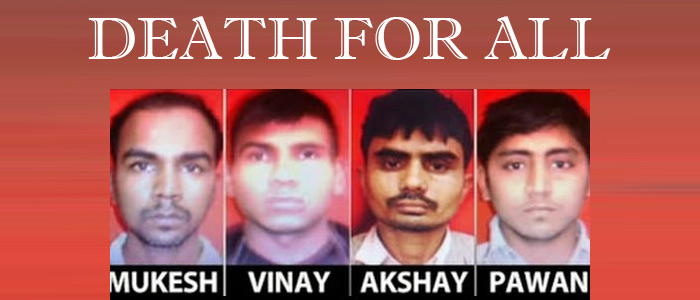
The Supreme Court upheld the death sentence and pronounced its verdict against the four of the accused - Akshay Thakur, Vinay Sharma, Pawan Gupta and Mukesh.
The three-judge bench headed by Justice Dipak Misra gave the verdict describing the brutal and demonic crime as a 'story of a different world'.
Justice R. Justice Banumathi said the testimony of the victim must be appreciated in the court and the notion that it has to be corroborated by other evidence must be removed.
The decision was applauded and hailed by the public with majority believing that justice has finally been served.








